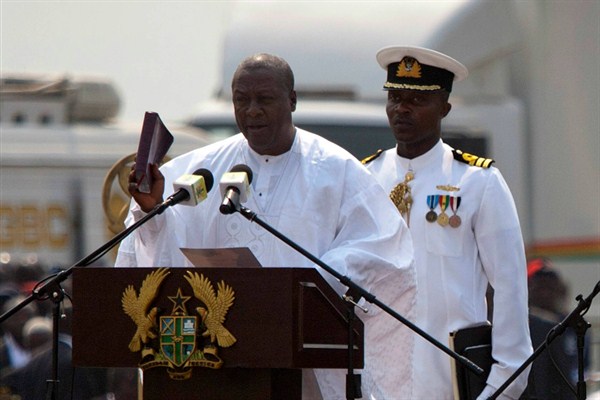On Dec. 7, 2016, Ghanaians are scheduled to vote in the country’s seventh general election since the return of multiparty politics in 1992, when Ghana transitioned from military to civilian rule. Ghana is considered to be one of Africa’s most mature democracies. Presidential term limits are firmly in place. Political power has peacefully alternated between the country’s two main parties, the National Democratic Congress (NDC) and the New Patriotic Party (NPP). Electoral disputes have generally been resolved through the electoral commission or the courts, and not through violent means.
Ghana is often praised for its stability, peace and democratic development. To be certain, much of this praise is deserved, but democracy is a continuous battle. While the 2012 election went relatively smoothly, that doesn’t necessarily mean that this year’s will too. And though Ghana has previously held six successful elections; peacefully transferred political power between parties twice, from the NDC to the NPP in 2000 and back to the NDC in 2008; and weathered sharp divisions over the credibility of the Electoral Commission of Ghana (EC), the dynamics ahead of the December elections suggest that this time could be different.
With just under two months to go before the polls, several signs indicate that, despite Ghana’s track record, organizational and procedural problems will plague the upcoming elections more severely than in the past. Two particular concerns are most prominent. The first is the result of controversies that have damaged the reputation of two key electoral actors, the electoral commission and the judiciary. The second involves the credibility of provisions currently in place for electoral security. Either of these factors might portend a tense electoral season on its own, but taken together they paint a rather alarming picture of a country at a crossroads.

